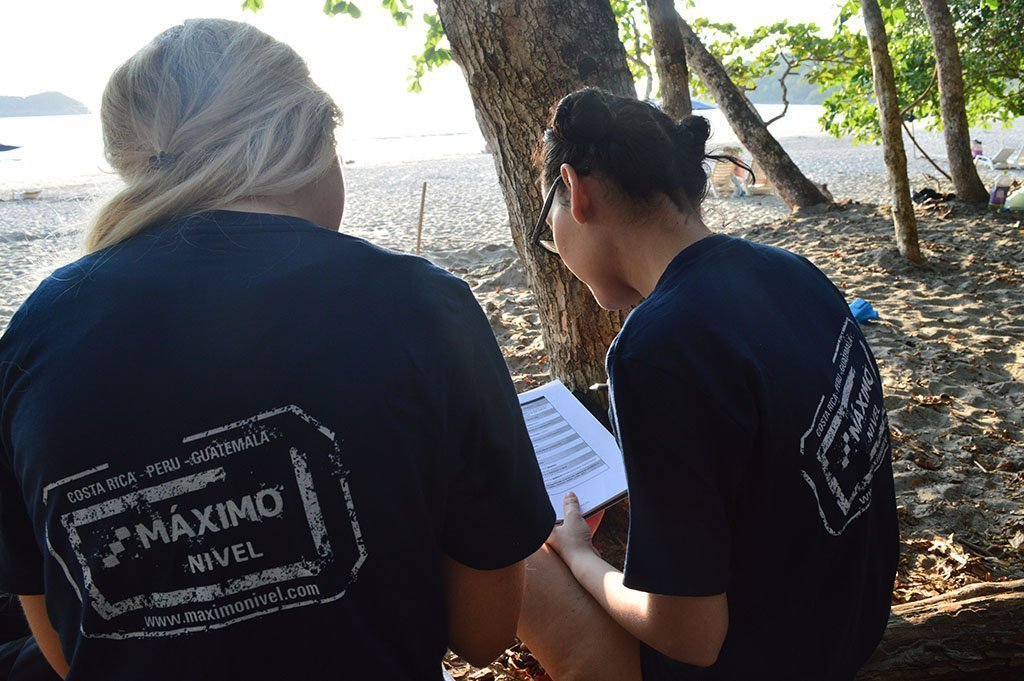
I had the travel bug, bad! I just didn’t have the money to keep it up. Then one day, while lamenting to a friend, she said, “Dude, you can teach English almost anywhere. I don’t even think you need a Bachelor’s degree depending on where you go, but you have one so that should definitely help you out”.
Yeah, don’t take advice from someone who’s never done what they’re giving you advice about. Here’s how I gained that wisdom: I took her advice. I looked for an English position online and I learned she was right. You hardly needed any qualifications. I applied to several positions and a week into my job search, I was offered a position in Mexico. I was stoked! I was ready to live on a beautiful beach with the clearest water, and have my paycheck far surpass my cost of living. I was going to live a life in paradise, and there was no way anything would stop me. Except one thing did. I never thought about the skills it actually took to teach English. But I had 23 years’ experience speaking the language, how hard could it be? I saved every penny, made sure I met all the pre-travel requirements, packed my bags and headed for Mexico.
I was thoroughly prepared to be trained on my first day as an official English teacher. I was going to learn all the ins and outs of teaching English to students who wouldn’t understand me, or so I thought. On my first day, the principal of the school introduced me to my 8 year old students, and then I watched her turn around and leave the classroom. I immediately panicked. “Where is she going?!” I thought. I nervously waited for her return for about 10 minutes. That’s when I realized she wouldn’t be coming back. I was left to teach these kids English on my own and I had to think fast. I spotted a ball in a corner of the classroom, and it hit me. Games! Kids love games. The idea was to throw the ball to someone, and that person would have to introduce themselves. Simple, right? Wrong. 3 hours later, I had 2 students get hit in the eye, 3 kids fighting over the ball, and the remaining 6 doing their own thing. I was exhausted, and I had failed. I was an exhausted failure. Not what I had in mind for my glorious life teaching English in Mexico.
That night I went home, youtubed some English lessons and went in with newfound confidence on day 2. My confidence had commanded the classroom so they were better behaved and seemed to be paying attention. I used a simple story I had found online, and then taught the words from the story I didn’t expect them to know. I did my best to define the words. The students’ wide eyes, and nods of comprehension made me feel good, so I kept it up for the rest of the week. By the end of the week, I gave them a vocabulary test. They all failed. What was I doing wrong?
I was pulled into the principal’s office the next week. They weren’t pleased with the failing grades, and apparently, they were asking for feedback from my students behind my back! Although the students said I treated them nicely, they also mentioned feeling completely lost in class. I was disheartened. English was the only language I spoke. 23 years of experience, yet I couldn’t get a group of 8 year olds to learn it. In what other industry does that happen? Now I was being put on probation, and if I didn’t get my act together I was going to be fired. I figured at that point, I was better off quitting. I had already failed, and I knew it. I just couldn’t understand why. And then I started doing more research.
I learned that most ESL teachers had completed their TEFL (Teaching English as a Foreign Language) certificate. Apparently, this course taught you HOW to teach English successfully, and I knew at that moment that was what I was missing. So, after just 3 weeks in Mexico, I packed my bags again. This time I was heading to Guatemala where I found the best deal for doing an on-site TEFL certification course. It was a 4-week course, and it guaranteed job placement. In those 4 weeks, all of my questions were answered.
Wide eyed, nodding in agreement students? Sure, thing they have no idea what’s going on. I learned you have to get them to talk, and you get them to talk by demanding they talk. Call on them by name and have them read from the board, answer in complete sentences, and use context clues for understanding. The more they talk, the more they learn. This is how language works, duh! How didn’t I realize that before?
I also learned about the different types of learners. What’s going to work for one learner may not work for the others. Some learn better through songs (listening), others through reading (visual), others through games (sensory/haptic). A variety of these styles needed to be incorporated into my lessons to accommodate all learners. It also forces them to think differently than what they’re use to, allowing them to push their boundaries and perform at their maximum potential.
But the most important aspect of teaching, I learned, is lesson planning. Lesson planning gives you a guide. It organizes the lesson so that you know what you want to teach, how you plan to teach it, and gives the learners a chance to show they can properly use what has been taught. The great thing about lesson plans are that you can always go back to them if needed, and if it was a great lesson, you can reuse it in a later class!
In 4-weeks I graduated with the skills and confidence I needed to teach English effectively, and I knew that because in my last week I was able to put everything I learned into practice. I had my own class which I taught one-hour lessons to, and they got it! They correctly answered Concept Check Questions, and by the end of the lesson, they put the material to use on their own. I was filled with pride, and so were my students.
When I first decided to teach English, it was purely to make extra cash while living in paradise. But after my TEFL course, I realized teaching was so much more than a paycheck. It was truly gratifying to know I was making a difference. Some of the students I taught during my practical teaching week in Guatemala were turned down from positions that required them to speak English. Others needed to reach a certain English level before they could apply for the academic program they were interested in. And some were genuinely just interested in communicating with people like me! They wanted to get to know the people visiting their country. Ask them questions about their hometown, and make lifelong friends whom they can speak English with. I began the course to leave with the ability to teach English. Not only did I graduate with new skills, but I left with a new passion. It was truly a life changing experience.
I started my English teaching career in Guatemala since I had grown so close to some of my students, and it just so happened that a position became available to continue teaching them. By the end of my 6-month contract, we all learned so much–me, various things that would work and not work for me in the classroom; the students, 2 levels worth of English material taking them from High-Beginner to Intermediate English speakers.
I never lost my dreams for living in tropical Mexico though, so I applied with confidence to several positions, and made my way back when I landed a new job. This time, it didn’t matter when the principal walked out of the room after a 5-minute introduction. I had my lesson plan ready, and I was confident that my students would absorb the lesson, and go home knowing a bit more English on that very first day. 2 years later, I’m proud to say I made my dreams come true. My TEFL certification allowed me to successfully travel Latin America and work as an English teacher in Mexico, Guatemala, and Costa Rica.
So, if you’re like me, a person filled with wanderlust, looking for a way to travel while making money, consider a TEFL course before jumping the gun into a career teaching English abroad. It’ll save you money, time, and heartache, and put you in the best position to make a difference while exploring the beautiful culture and country of your choice.
– Rhiannon J.





